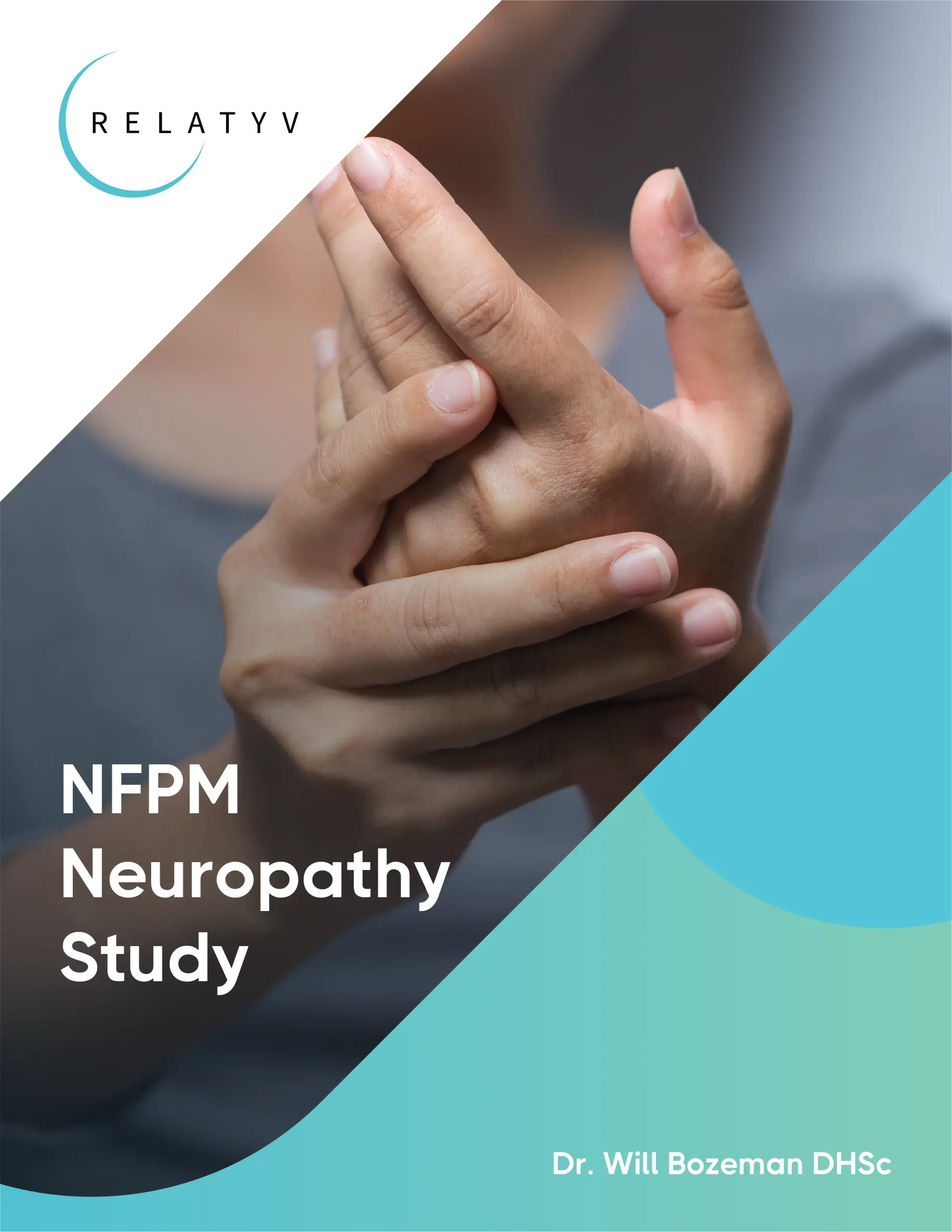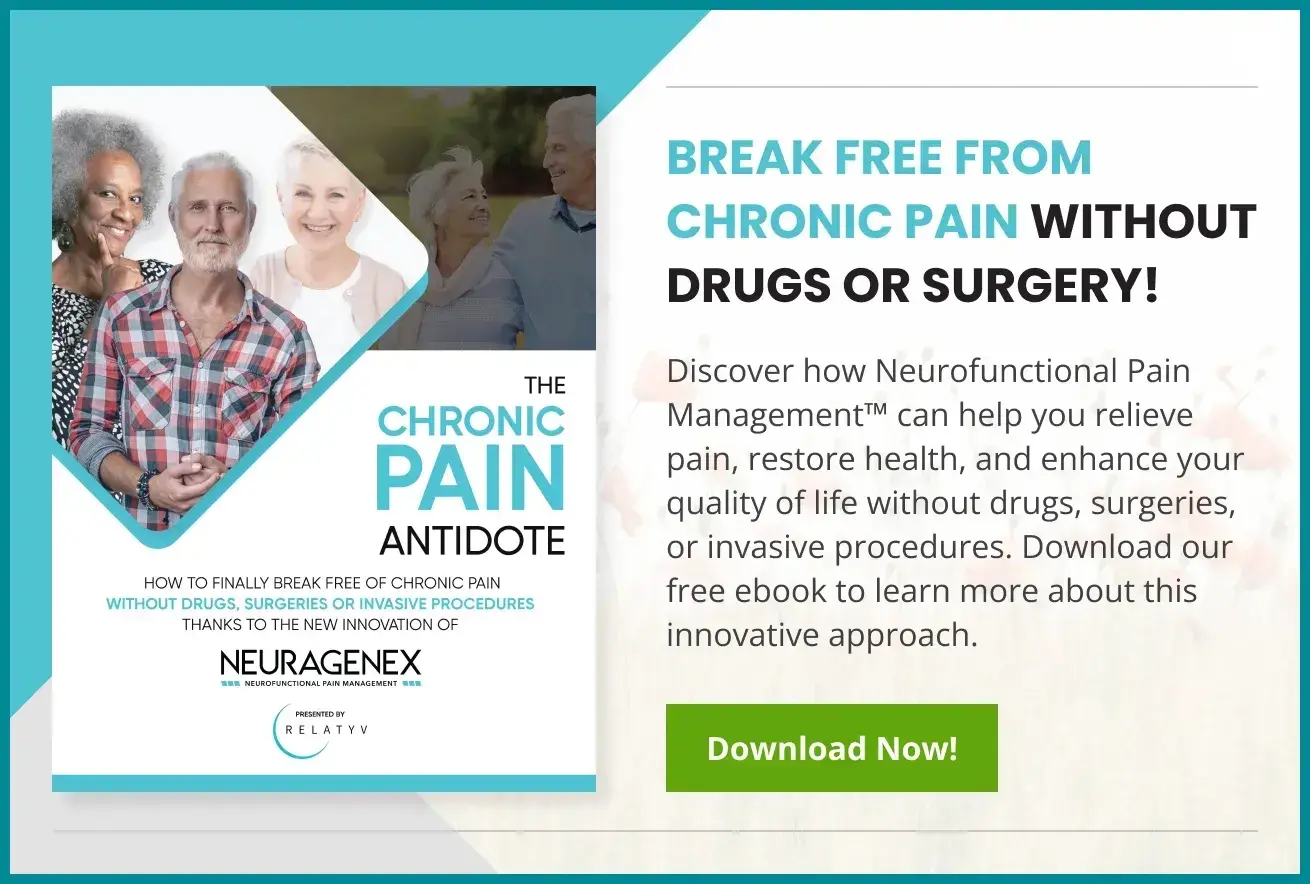Plantar Fasciitis

Does Plantar Fasciitis Cause Swelling?
Read More
December 6, 2023
Are you currently struggling with the stabbing and aching pains of plantar fasciitis? This condition causes pain and inflammation in the thick band of tissue connecting the heel bone to the toes, known as the plantar fascia.
While managing mild cases of plantar fasciitis is relatively straightforward, more severe cases can become challenging and evolve into an ongoing interference with regular daily life. So, what can someone struggling with persistent plantar fasciitis pain do to find relief? And does plantar fasciitis ever go away?
You may have read or been told that plantar fasciitis is sometimes treated with medications, steroid injections, or even surgeries. It’s only natural to start seeking information on long-term, appropriate treatment options to relieve chronic plantar fasciitis pain without the use of harsh drugs or invasive procedures. We’d like to share some valuable insights into this painful condition.
On this page, we will explore the nature of plantar fasciitis pain, how long it should typically take to heal, and answer the common question, “Does plantar fasciitis ever go away naturally?”
We will also provide useful information about various plantar fasciitis treatment strategies, ranging from at-home remedies to conventional treatments. We will also include innovative therapies such as the Neurofunctional Pain Management approach offered by Relatyv, which provides promising solutions for managing your pain and improving overall well-being.
We believe it’s essential for you to know all the potential management solutions available to you, helping you make informed decisions about your healthcare and plantar fasciitis strategy plan. Let’s kick things off by understanding what exactly plantar fasciitis is, how it happens, and what it feels like.
Plantar fasciitis is a foot condition caused by overuse and excessive strain. It’s commonly associated with repetitive or high-impact activities like running, dancing, or extended periods of walking. But for some people, the shape of their foot, the type of shoes worn, or an element of obesity can also trigger plantar fasciitis.
Whatever the cause of overexertion, localized inflammation and small tears in the foot’s thick plantar fascia tissue can develop, which then lead to pain and stiffness. The pain associated with plantar fasciitis can vary from moderate discomfort to sharp stabbing sensations and is typically concentrated near the heel.
We want you to know that finding relief from pain is possible. Having a deeper understanding of plantar fasciitis can help you learn more about your experience with this condition and how long it may last. Most importantly, it has the potential to lead you to find the most effective management strategy for you and your individual symptoms.
In the following sections, we’ll discuss more about how long it may take for plantar fasciitis to heal and for the painful symptoms to ease, as well as the particular symptoms that should prompt you to make an appointment with your doctor.
The recovery time for plantar fasciitis can vary greatly between individuals. It depends on many factors, like the underlying cause, how severe it is, whether you’ve experienced it before, and if you have any other health conditions that impact healing.
Plantar fasciitis usually improves after a few months with a good management plan and appropriate lifestyle adjustments. However, the longer you have had symptoms and the more intense the pain, the longer it may take for your foot to heal.
In other words, the quicker the condition is managed effectively, the better the outcome is likely to be. But most importantly, if plantar fasciitis is not managed well, pain and stiffness can last up to six months and, in severe cases, even up to a year.
In the next section, let’s discuss the effects of plantar fasciitis and look into whether it has the potential to be resolved naturally.
The good news is that the pain and stiffness associated with plantar fasciitis won’t last forever. If the condition is identified early and is managed with appropriate rest and rehabilitation techniques, symptoms can gradually improve on their own.
Patience and adherence to rehabilitation are possibly the most important parts of preventing symptoms from worsening, allowing inflamed and damaged tissues to heal naturally. But for most individuals, the truth is that completely altering their lifestyle to support their foot’s healing will be a challenge.
However, it’s important to note that due to persistent pain and discomfort, it’s normal for some everyday activities, such as walking, to become significantly impacted. Living life with chronic foot pain can cause other aspects of your body to compensate, leading to changes in gait, such as limping. When your normal posture and smooth movements are altered to protect the foot, it will eventually impact your ankles, knees, and back.
Receiving an early diagnosis and a tailored management plan realistically aligned with your lifestyle is vital for comprehensive plantar fasciitis management. After all, it’s essential to find a balance. Then, being able to recognize when symptoms indicate your condition is worsening is crucial. Let’s explore this aspect in the next section.
Many cases of plantar fasciitis can improve with rest and at-home remedies. Still, if you experience persistent or worsening symptoms, it is important to seek advice from a health professional for an effective management plan to help you find relief.
Here is a list of some key indicators that should prompt you to seek medical attention:
Learning more about these signs can help you better understand your condition, identify if it worsens, and prevent potential complications associated with untreated plantar fasciitis. Let’s explore a few natural plantar fasciitis therapies you can use at home to help promote your healing and recovery journey.
Exploring at-home remedies is a great starting point for finding relief from mild plantar fasciitis symptoms. Many people find various well-known remedies useful, and we’ve detailed a few options in the headings below:
Inflammation plays a large role in plantar fasciitis. Maximizing your diet and nutrition can support your body’s ability to reduce overall inflammation and promote healing.
Some people may like to limit certain foods known to worsen inflammation, such as processed sugars, processed meats, and artificial preservatives. Alternatively, various anti-inflammatory foods such as turmeric, ginger, and fish oil can be incorporated to optimize healing processes and potentially improve plantar fasciitis symptoms.
Essential oils are used for a wide range of health benefits, mostly known for their natural anti-inflammatory and calming properties. Lavender, peppermint, and frankincense oils are known for their potential soothing effects on foot discomfort and can be an excellent natural therapy for relieving plantar fasciitis pain and inflammation.
Applying a cold pack can help provide temporary pain relief to the affected foot by reducing inflammation. Be sure to only apply ice to the skin for 15 minutes at a time, and always protect it from direct contact by covering it with a towel.
Wearing a foot splint at night or throughout the day can help you keep your foot in a neutral position, which may reduce the tension on your plantar fascia and speed up healing.
A number of other potential therapies can include sleep optimization, staying hydrated, and changing your footwear. But it’s important to realize that while at-home remedies can provide temporary relief for plantar fasciitis, these are often short-term solutions.
It’s important to understand the limitations of at-home treatments. With this knowledge, you can see how they could complement a more all-encompassing management strategy. A more broadly targeted approach not only supports your body’s natural healing processes but also addresses the root cause of the inflammation and pain associated with plantar fasciitis.
In the next section, we’ll discuss some of the more conventional treatments that doctors regularly recommend.
Conventional treatments offer a more focused approach to managing the root cause of plantar fasciitis and alleviating its symptoms. For targeted relief, medical practitioners frequently customize a variety of the following treatments:
It’s crucial to remember that many medications should not be used for extended periods of time because of potential side effects or dependence. Always use medications under the direction of your doctor or pharmacist.
Additionally, whenever possible, it’s advisable to explore alternative options for safer, long-term relief, a topic we will delve into in the following section.
If you or someone you care about is experiencing chronic discomfort due to heel pain from plantar fasciitis, it’s understandable that finding relief is a top priority. While simple preventive measures, at-home remedies, and conventional methods are all excellent, it can be challenging to find enduring relief once foot pain and discomfort have set in.
At Relatyv, we specialize in Neurofunctional Pain Management, which offers a revolutionary approach to pain relief without resorting to harsh medications or surgery. Our innovative protocols are specifically designed to target pain and inflammation, such as seen in conditions like plantar fasciitis.
The combination of advanced therapies utilized at Relatyv adopts a whole-person approach, harnessing the benefits of electroanalgesia, IV hydration therapy, and lifestyle counseling. These components work synergistically to reduce pain and inflammation, as well as promote healing and magnify your quality of life.
So, what specifically are these treatments? Let’s continue to explore them in more detail:
Electroanalgesia is a unique therapy that directs high-frequency electronic waves to the affected area, reducing your body’s pain signals at a cellular level. This non-invasive method may also improve muscle function by increasing blood flow and decreasing inflammation.
Additionally, as the body’s natural endorphins increase, most people feel a lasting sensation of relaxation and well-being following a session of electroanalgesia.
IV therapy delivers essential nutrients, including vitamins, minerals, and amino acids, directly into the bloodstream. This method enhances their bioavailability, enabling the body to access these crucial elements for various vital biological processes more readily.
The advantages of IV therapy include improved hydration, optimized nutrition, and enhanced anti-inflammatory processes. This collectively creates an optimal healing environment for tissue repair and overall well-being.
Importantly, at Relatyv, we customize each of our IV therapy programs based on individual needs to ensure patients receive the right nourishment for their healing journey.
Our professionals have helped many people regain control over their chronic pain. We recognize that managing persistent pain entails more than treating just the physical symptoms.
That’s why our comprehensive approach involves lifestyle counseling, offering personalized guidance to enhance not only your overall physical health, including strategies for improving foot health but also encompassing mental well-being. We understand that quality of life involves both body and mind, and our counseling services address these interconnected aspects for a whole-person approach.
We hope the information on this page has helped you better understand the nature of plantar fasciitis pain, how long it can last, and the importance of exploring the various treatment options available.
It’s essential to remember that while at-home remedies can be a great initial option to offer temporary relief, they are often better suited as bridging or complementary therapies. Conventional treatments, including physical therapy and medications, can also be effective, but their long-term uses may have drawbacks.
At Relatyv, we offer a groundbreaking approach to plantar fasciitis pain through Neurofunctional Pain Management. Our innovative therapies, such as electroanalgesia and IV hydration, target pain and inflammation at their source, promoting natural healing. Additionally, our lifestyle counseling emphasizes a whole-person approach and complements these treatments, ensuring you receive a comprehensive care plan that benefits you long after your treatments are completed.
Find a balanced lifestyle, and don’t let plantar fasciitis continue to disrupt your life. Consider a long-lasting solution with Relatyv’s tailored treatments, moving beyond temporary relief towards sustainable pain management plans and improved overall health.
About the Author
Will is a healthcare executive, innovator, entrepreneur, inventor, and writer with a wide range of experience in the medical field. Will has multiple degrees in a wide range of subjects that give depth to his capability as an entrepreneur and capacity to operate as an innovative healthcare executive.
Share on Social Media



You can see how this popup was set up in our step-by-step guide: https://wppopupmaker.com/guides/auto-opening-announcement-popups/
You can see how this popup was set up in our step-by-step guide: https://wppopupmaker.com/guides/auto-opening-announcement-popups/
Neurofunctional Pain Management Overview
Symptoms
Conditions Treated
Treatments
Articles by Category
Locations
Colorado
Wisconsin
Georgia
Hiram
Lawrenceville
Marietta
Powder Springs
Texas
Waco
Victoria
Illinois
Buffalo Grove
New Lenox
St. Charles
Arizona
Tucson
Waddell
Arlington
Avondale
Buckeye
Superior
Mesa
Palo Verde
Morristown
Tempe
Chandler
Anthem
Eloy
Florence
Fort McDowell
Phoenix
El Mirage
Coolidge
Gilbert
Arizona City
Casa Grande
Casa Blanca
Aguila
Sacaton
Apache Junction
Kearny
Stanfield
Goodyear
Litchfield Park
Alabama
Arkansas
California
Florida
Idaho
Indiana
Iowa
Kansas
Louisiana
Maryland
Michigan
Rhode Island
Minnesota
Mississippi
Nevada
New Jersey
New Mexico
North Carolina
Ohio
Pennsylvania
South Dakota
Tennessee
Utah
Virginia
Washington


